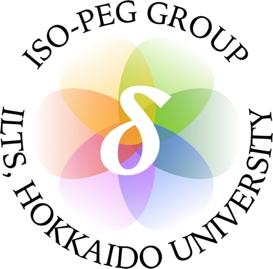<English>
Graduate positions (M.S. and Ph.D.) are filled on a competitive basis. Prospective students should contact Dr. Chikaraishi (ychikaraishi_AT_lowtem.hokudai.ac.jp), prior to your application.
M.S. Opportunities:
Students interested in contributing to on going works in Chikaraishi’s laboratory are welcome. M.S. program provides students short-term researches in part of the research interests in Chikaraishi’s laboratory, but has the high-flexibility to allow students to customize research(es) toward students’ interests.
Ph.D. Opportunities:
Highly motivated students are welcome as candidates for the next generation of leading scientists who love/enjoy the advance of both basic and applied researches in isotope physiology, ecology, and/or geochemistry. In Ph.D. program, students will acquire basal resources needed to succeed in the very-competitive science world.
Acquired resources:
- Skills of proposing hypothesis, executing experiments, making presentation, and writing manuscripts for independent, cutting-edge researches;
- Skills of scientific discussion based on logical-thinking and flexibility; and
- Skills of communication and scientific discussion with international scientists.
Requirement:
- To gain the Ph.D. degree, I generally required that students need to accept three publications in international journals, two oral presentations in international conferences, and Ph.D. thesis in the graduate school. But this requierment is flexible in the quality (but not quantity) of students' studies.
Postdoctoral Researchers:
Postdoctoral Researchers interested in exploring the opportunities for researches (or in pursuing an independent research project) in Chikaraishi’s laboratory, please contact Dr. Chikaraishi (ychikaraishi_AT_lowtem.hokudai.ac.jp).
Note: Current Research Interests in Chikaraishi’s laboratory
- Adaptation of organisms to environmental changes (e.g., phenology, starvation, invasion,etc.)
- Adaptation of organisms to low temperature habitats
- Energetic and functional ecology in biogeochemical cycles
- Key processes for controlling isotopic compositions of organic compounds in organisms’ physiology
- Universality (as well as generality and predictable fluctuation) in the change of the isotopic composition of organic compounds
- Method for (and methodology using) compound- and position-specific isotope analysis of organic compounds, and physiological, ecological, and/or geochemical applications of the method/methodology developled.
[Major Contents]
Welcome English / 日本語
People/メンバーの紹介
Research subjects/研究の概要
Seminar/研究室ゼミ
Prospective Students/学生募集
Fee for Analysis/依頼分析
スポンサー/Sponsorship
[Others]
安定同位体比を用いた研究の基礎知識
海水魚とサンゴの飼育: 概要 と 注意点
水槽の説明と自作 と ギャラリー
コラム:研究者を志す皆さんへ
研究室の写真: Instagram と 写真ギャラリー


